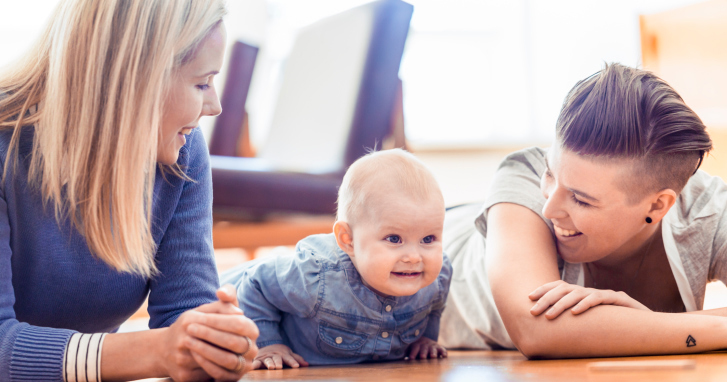Foster carers are the backbone of the alternative care system in Ireland, with many LGBTQ+ families being enriched through fostering. There is an urgent appeal for more carers in the Dublin area, could you consider being one of the increasing LGBTQ+ foster carers who make a difference in the life of a child?
To help you determine whether it is right for your family, we spoke to three Tusla foster carers about their experience.
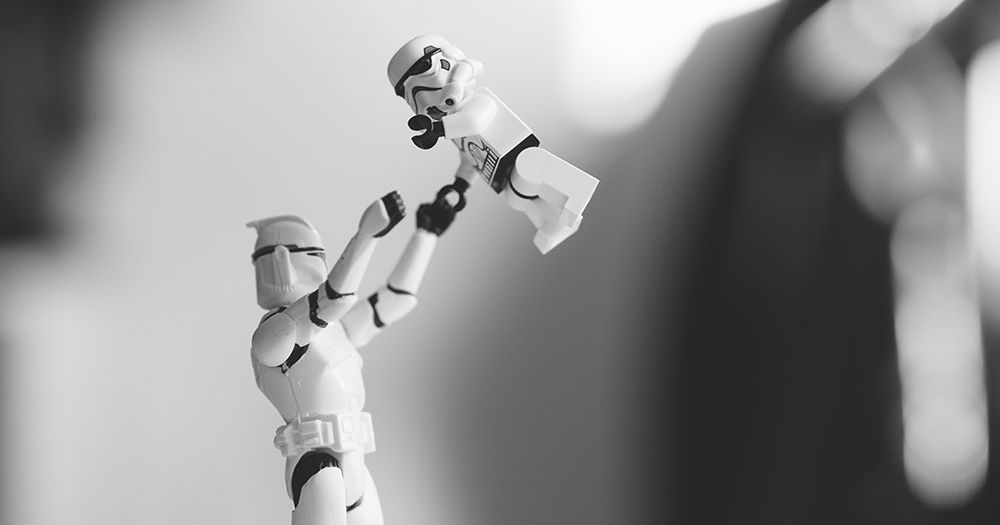
For Tony and Darren, their role as foster carers came to them rather than them going looking but they say if they had known that it was an option for LGBTQ+ people, they would have sought it out much sooner.
Darren: “We came into it a little bit differently, we are relative foster carers. So, a child in my family needed some help.
“I come from a very large family with 10 siblings, and so I’m used to having children in and out of my life since forever. I’ve babysat since I was 12 or 13 – you wouldn’t do that now but back then, you know.
“So it was always something that I kind of wanted to be, a father figure to a child. Being gay I didn’t think it was ever an option for me.”
Tony: “We didn’t go looking for it really, I mean we like kids, we’re good with kids but I suppose by the time it happened for me I was 50 so I thought that that ship had sailed, and we had resigned ourselves to a quite a comfortable, adult life.
“As Darren said, this need presented itself and we just went, ‘okay”, we didn’t think too hard about it really, just jumped in. And that’s how it started for us.”
Darren: “A child was in need, we had space, we had the love to give, from the stability that we thought we would give. It just went from there, really, and I would never change it. It’s been the most amazing experience so far.”
Philomena grew up experiencing the joys of foster care and she followed in the footsteps of her mother.
Philomena: “My mam had done it before me, for years upon years, and that’s something that I wanted to do. Seeing children coming in and out of the house, I said, ‘yeah, this is something that I would like to do.'”
While Philomena’s path to foster care was very straightforward, for Maria and her wife Michelle, the road to becoming foster carers was a winding one as they didn’t think LGBTQ+ couples would be considered.
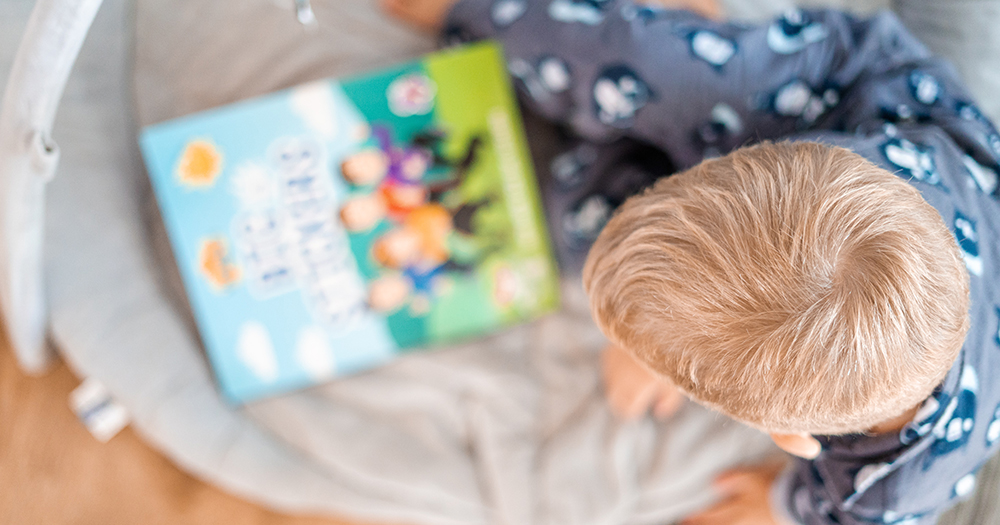
I remember the first time we brought them down to my mum I had a chat with her myself outside and I said ‘well what do you want them to call you?’ and straight away she was like, ‘Sure, I’m their Nana’,
Maria: “Myself and my wife Michelle met and got married in 2008. We tried a number of different methods. We tried IVF – that didn’t work for us. Then we thought about going down the route of adoption, and I know in this country there is very little or no adoption so we thought we’d go down the route of foreign adoption. With that, you’re talking massive expense and issues and time and years and limits and we were thinking, ‘It’s gonna take years and years to do this and it’s very very expensive so then we thought, no we’ll leave it.
“But then we looked into the whole idea of fostering – there were family members of mine who fostered, a straight couple and I thought, there’s no reason why we shouldn’t be able to foster. So we contacted Tusla.
“From the initiation, it took about 19 or 20 months, including all the interviews from start to finish, to the point where we were given a permanent placement of two direct siblings, a boy, and a girl. They’re with us three years this August, and like the boys, I wouldn’t change it for the world.
“I remember the first time we brought them down to my mum I had a chat with her myself outside and I said ‘well what do you want them to call you?’ and straight away she was like, ‘Sure, I’m their Nana.’
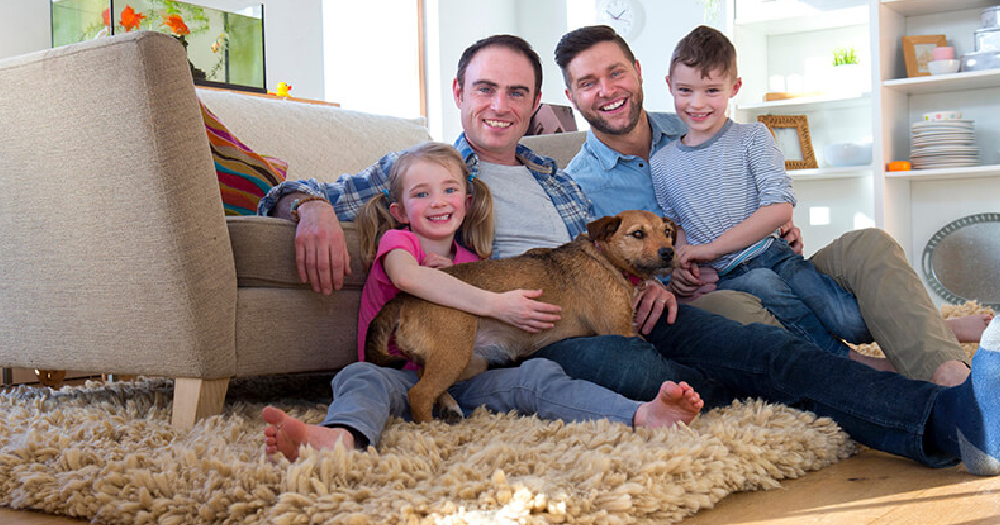
it was something we thought we couldn’t do and now something realising that we can. It has just really added, everything to our lives.
“We were following the myth of – not that you’re not allowed – that fostering wasn’t really something that will be looked upon by TUSLA as a position for an LGBTQ+ person.
“Whereas in actual fact at the time we didn’t realise that they’re actually crying out for people in our position who would have no children and would probably both in employment with an opportunity for one or other, to give up some time to be with the children. Also, as people who love children but not having them in our lives, and having a caring, loving home environment within which to raise them.
“We realised that we ticked all the boxes… It was something we thought we couldn’t do and now something realising that we can. It has just really added everything to our lives.”
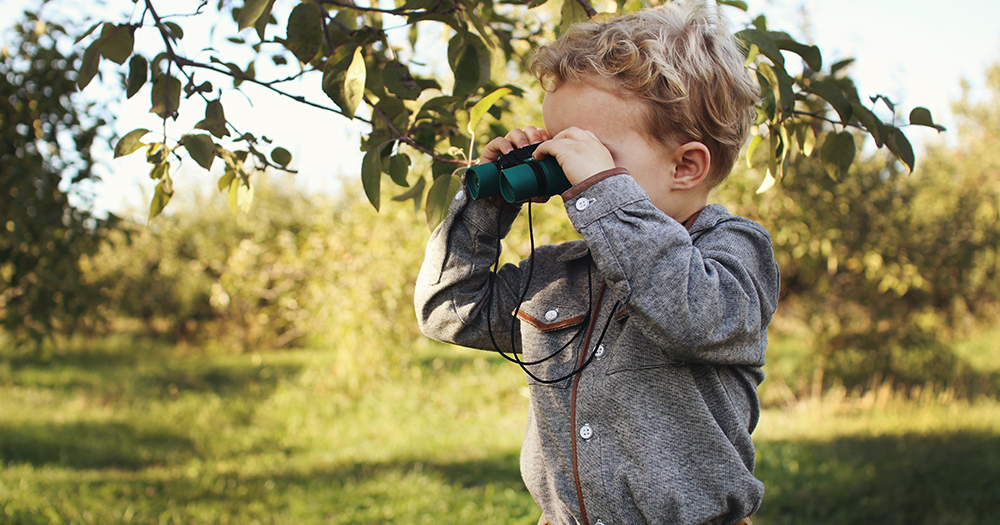
There are many misconceptions of what foster care is and who it’s for. Tony and Darren say that they didn’t realise there were different placement types to suit every type of family.
Darren: “I didn’t realise there was short term care or emergency foster carers and respite. I thought it was you’re in fully, or not, and that was my understanding.”
Maria: “For myself and Michelle, I suppose I’m a very meticulous person when it comes to looking into things. So I had researched it from before we decided to go ahead with the interviews and so I knew there was a long term, short term, emergency care, and obviously the relative fostering as well.
“From our point of view, because we hadn’t got children, we were looking for a long term, placement with us. Someone that would be with us. We wanted to rear children and we wanted to give them a loving home.
“Now we knew with that, it comes with its own difficulties because if you have a position of a foster child being handed into care permanently, they’re coming from what had to be a very difficult situation for the biological family, where they would have been handing over these children.
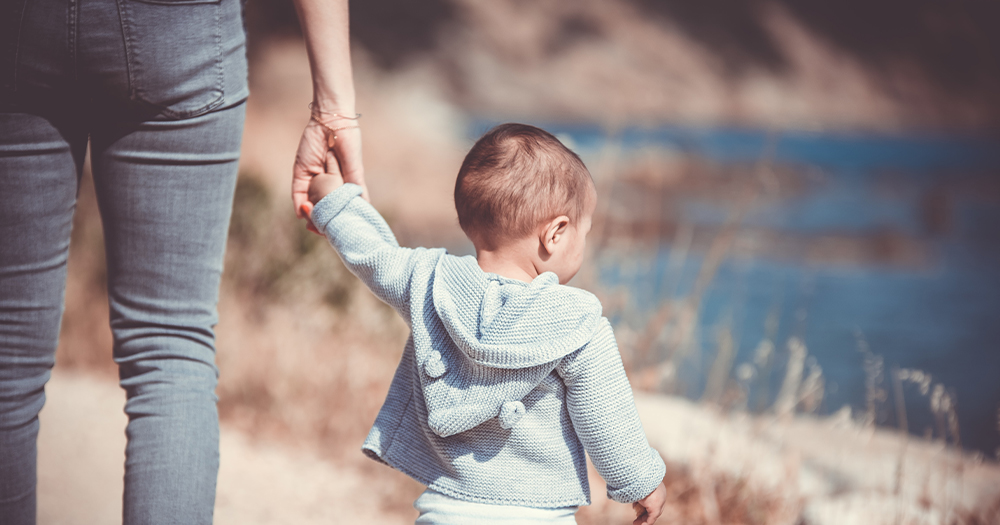
“We knew that if we were going to take on a long term placement where they would be up to 18 or young adults that will come with its own issues…
“So if you go for the long term placements, you’re probably going to be fostering children who are going to be saying goodbye to their families in a sense.
“Our children that we have fostered here in our care, they have monthly visits with both of their biological parents, which is brilliant. They have access, we get on with the parents, and that is working very very well for us thankfully.
“The children are aware of why they’re here and that this is their home, but they will always be in a position where they will see mom and dad. But it is probably more permanent as such.”
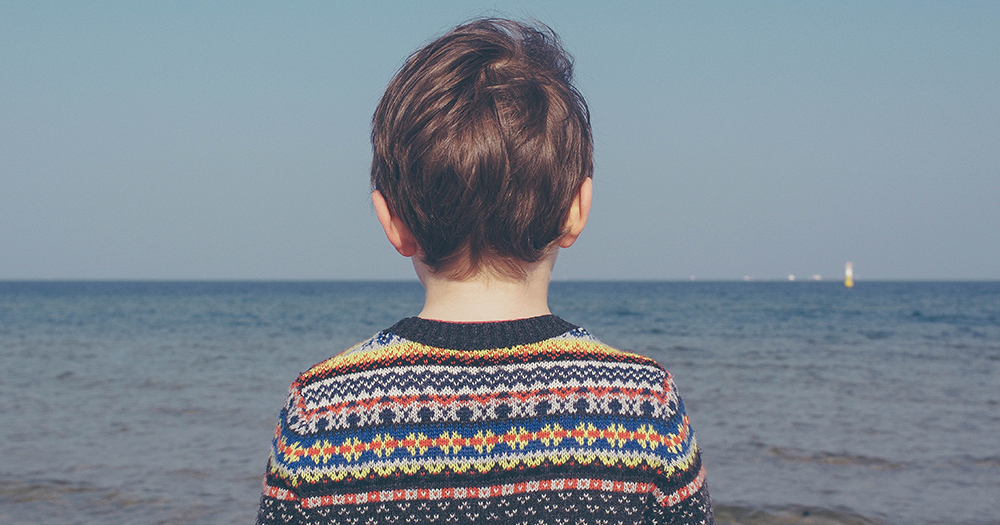
You devote your life to the children, you do make sacrifices but I would say if you’re if you wholeheartedly want it, go for it 100%
Another element of foster care is answering questions from the children about their situation which Tony and Darren found difficult at first but said Tusla has been a great support in helping them field difficult topics.
Darren: “Tusla has been pretty proactive. They’ve gotten there before we needed them in some respects…
“When you’re outside of the process the phrase ‘social worker’ seems quite daunting in some respects. You’re intimidated by the notion of a social worker coming for a visit, but they’re actually Team Darren and Tony, they’re not there to give you a hard time.
“I thought that they were going to be intrusive and they were going to be knocking on your door every five minutes and that we would have to do things their way. It’s very much, you’re living your life normal and they’re the support system and if you can look at it from that point of view, you’ll be sailing.”
Becoming foster carers is a unique role that Tusla are asking LGBTQ+ people to consider. With that comes sacrifice but is also infinitely rewarding for both the carer and most importantly the child.
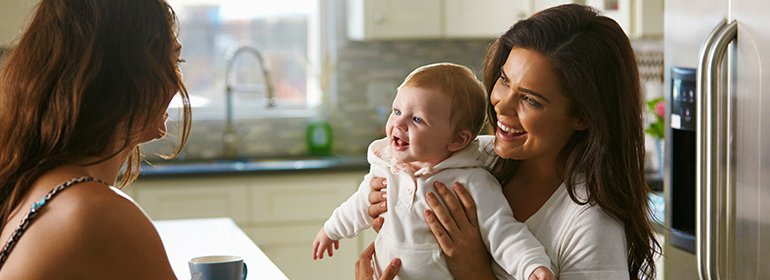
Philomena: “You devote your life to the children, you do make sacrifices but I would say if you wholeheartedly want it, go for it 100%. You have your ups and downs along the way but once you get over the hurdles, you’re fine. I wouldn’t change it for the world.”
Tony: “It is a big life change, you’ve got a whole new life in your life. The way you live as a couple, as a family, the way you interact with your extended family, your work-life balance all changes completely.
“You have to be prepared for a reconfiguration of how you live and how you box off your priorities for the future. I mean, our life now bears absolutely no resemblance to the relaxed spontaneous lifestyle that we had before this.
Darren: “No parents do and that’s the reality of it but you’re not called in to replace that child’s parents.”
Tony: “Yeah you’re kind of expanding their parent database so to speak, rather than replacing their parents.”

My wife explained to them there are loads of different types of families and that they have a massive family because they have us and their biological family
While fostering is one route to parenting, the ups and downs of raising a child is a universal experience. The foster carers shared how they approached their LGBTQ+ identity with the children.
Philomena: “I suppose they were told at a young age as well in regards to my sexuality and there wasn’t really any big questions towards it. They went to school and they were fine they were just like ‘this is the lady who’s looking after us, and giving us what we need’.
“I get on with their dad very well so we would do a lot of things together for the boys, like going to parent-teacher meetings when they were in primary and secondary. So we have a good thing going as well.
“It’s as normal as anything and they don’t think they’re in any way different. When they were in fifth and sixth class they started saying, ‘we don’t need to be brought to school anymore.’ That’s what you’re gonna get anyway – you’re not cool anymore! But that’s just the general kid’s way- they grow and they learn.”
Maria: “From the word go the children have just been very normal about it with us. They’ve just kind of grown to be with us and see us as completely normal. We have explained to them, the boy will ask questions like ‘you’re married to Shelly’ and have this little kind of confused look on his head…
“We explained that sometimes there’s a woman with a woman, sometimes there’s a man with a man, and we’ve just been very normal with them explaining it to them as anybody would, as you would explain to your nieces and nephews. They have got so normal about it growing up with it, with us, they really don’t question it.”
Darren: “The key for us has always been truthful and open and honest about our relationship. Our little guy recently because of the lockdown has come across Modern Family, and obviously there’s Cam and Mitch in it, and I think for the first time, the word ‘gay’ came up and we had to ask him did he understand what that meant. He did because he had heard it before and we explained it to him then, so there are no issues with him in that respect at all.”
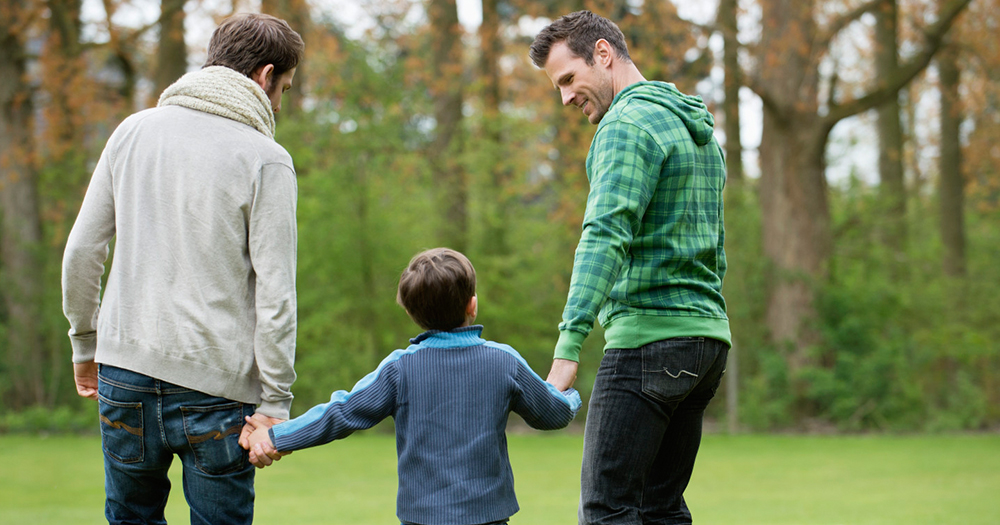
he just shrugged and he goes ‘sure love’s love’, and walked off.
Tony: “My cousin has a little girl, she’s probably two years younger than our boy, and we were at a family event last year, and she was saying she was very jealous that her friend at school had two dads and how come she only has one and our guy said, ‘well, I’ve got three’.
Darren: “It was last year when we went to a communion and I got cornered at the front of the house with about seven children who just sat in front of me, and one of them was probably about eight and he just said to me, ‘hold on, you’re a boy and you married Tony?’
“I said ‘that’s right’ and he just shrugged and he had a couple of questions and I think because I was answering them as openly and honestly to him, all child-friendly, obviously, he absorbed it all.
“After about 10 seconds he just shrugged and he goes ‘sure love’s love’, and walked off.
“I kind of sat there in shock, because coming from the background that we would have come from, we would have always had to defend ourselves in a way, you know, whereas these kids just see it as it’s two people who love each other and are providing this stable home for somebody.”
For any LGBTQ+ people who may have thought of becoming foster carers before, now is the time to make the call. Freephone 1800 226 771 o4, email [email protected] or visit tusla.ie or fostering.ie for more information.
© 2020 GCN (Gay Community News). All rights reserved.
Support GCN
GCN is a free, vital resource for Ireland’s LGBTQ+ community since 1988.
GCN is a trading name of National LGBT Federation CLG, a registered charity - Charity Number: 20034580.
GCN relies on the generous support of the community and allies to sustain the crucial work that we do. Producing GCN is costly, and, in an industry which has been hugely impacted by rising costs, we need your support to help sustain and grow this vital resource.
Supporting GCN for as little as €1.99 per month will help us continue our work as Ireland’s free, independent LGBTQ+ media.
